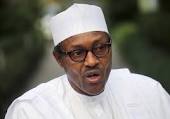
IMPROVING our anti-corruption strategies received traction in the two bills that President Muhammadu Buhari forwarded to the National Assembly last month. The action, which comes amid the renewed vigour in the anti-graft war, is gratifying. Given the significance of these bills, the legislature should expeditiously consider them.
The two bills are the Money Laundering Prevention and Prohibition Bill 2016 and the Mutual Legal Assistance in Criminal Matters 2016. The latter seeks to obtain more international legal assistance in criminal investigations, recovery and forfeiture in respect of money laundering cases; and “the restraining of dealings in property or the freezing of assets that may be recovered, forfeited or confiscated.”
The new Money Laundering bill expands the scope of crimes so categorised, just as it provides legal protection for the employees of institutions and professional bodies that may uncover such illegalities. Besides, “It provides appropriate penalties and expands the scope of supervisory bodies,” among others.
The Money Laundering Act 2011 had 12 sections of it amended in 2012, for its effectiveness. The law prescribes that a transfer to or from a foreign country of cash in excess of $10,000 by an individual, or a corporate body, shall be declared to either the Nigerian Customs Service or the Central Bank of Nigeria.
Yet, over $150 billion was coolly siphoned out of the country in the 10 years to 2015, according to the President. “The fraud has been growing for a number of years; a lot of Nigerians cannot comprehend it,” Buhari said in July 2015, shortly after he returned from a state visit to the United States. His conclusion substantiates the Global Financial Integrity report, which had earlier claimed that $182 billion was stolen and laundered offshore between 2000 and 2009.
Further evidence came from the African Union last year in a report by its special committee chaired by Thabo Mbeki, a former President of South Africa. Out of $60 billion illegally transferred annually out of Africa by 2010, $40.9 billion of it, the AU said, came from Nigeria.
Nigeria has mutual legal assistance agreements with the United Kingdom, Switzerland, Australia and now, the United Arab Emirates. Buhari sealed the pact with the latter in January during a state visit. Nigeria has not been able to maximise the advantage of these international windows simply because of sundry inhibitive socio-political and legal environment at home, which the legal assistance bill seeks to tighten up.
In February 2005, Switzerland returned to Nigeria the sum of $500 million siphoned by the late military Head of State, Sani Abacha, and stashed away in Swiss bank accounts. He is believed to have looted over $5 billion. The US is still keeping more than $550 million and £95,910 of the Abacha loot. “This is the largest civil forfeiture action to recover the proceeds of foreign official corruption ever brought by the department,” said Mythili Raman, then acting Assistant Attorney-General of the US. Switzerland has since repatriated $700 million of Abacha’s loot.
How $322 million recovered Abacha loot was re-looted by the Goodluck Jonathan administration under the guise of using it to procure arms to fight the Boko Haram insurgency is the subject of an ongoing national drama. The erstwhile National Security Adviser, Sambo Dasuki, based on the decision of a select committee, which Jonathan chaired, allegedly collected the money from the Central Bank of Nigeria in raw cash, in 11 suitcases, which was then shared to the political elite in the run-up to the 2015 general election.
Some of the beneficiaries are now facing trial by the Economic and Financial Crimes Commission. It is to checkmate such recklessness in future that “the restraining of dealings in property or the freezing of assets that may be recovered, forfeited or confiscated,” is provided for in the new anti-graft bill.
Why extant legal instruments failed to act as effective bulwarks against money laundering must be critically examined. The Nigerian Financial Intelligence Unit and the Special Control Unit against Money Laundering are among these instruments. They were set up to strengthen the Economic and Financial Crimes Commission in dealing with this economic crime. Under the extant money laundering law, through automation, a bank alerts the EFCC on transactions that fall within the “suspicious thresholds.”
However, the banks seem not to be doing so. Instead, they connive with money launderers to ruin the law, as much as our corrupt judiciary. Such consciousness should drive the government to think of a robust containment strategy. The new money laundering law will be on a firmer foundation if a bank that abets the crime is charged along with a suspect and made to pay a heavy fine if found guilty. The bureaux de change, another conduit for this financial heist, should not be spared either. Licences of those that may be found culpable should be revoked and their owners prosecuted.
While it is necessary to hinge the anti-graft war on the rule of law, what Nigeria needs now is an activist judiciary that will lean more on the side of justice than on legalism in arriving at its decisions for the good of the society. We have treasury looters with so much money, which they use to pervert the cause of justice. This explains why the corruption/money-laundering trials of former state governors are still at the rudimentary stages since they vacated office in 2007.
The society should rise up and insist on justice in these cases; and also seek accountability in governance. This is what civilised societies do.
END

Be the first to comment